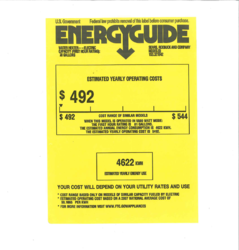chrispr1
Member
But why not for your 'commuting' car? Seems it would work well for that... (economics above set aside). IF someone came up with a 300 mile range electric car for less than say $20K would you give it serious consideration? I would have to imagine most folks could.
I'm with another who doesn't spend that kind of money on vehicles. I got my commuter for 25% of retail because it had a bad clutch and it still gets me huge mpg. The EVs are still pretty new in my mind and I'd rather let the early owners cut their teeth on them and would consider them down the line. My baseline would be a range of about 750 miles without a charge which is close to what I get on a full tank of fuel without a car payment, higher insurance rates, or personal property taxes. The economics just don't make sense for me and I'd only be buying one out of social responsibility and the premium right now is pretty steep.



 . Although it has been in the freezer for almost a year, so that negates the energy savings substantially. Going to try to can most of our salmon this year. Can't wait for the season to really start, we've been out a few times but skunked. Still early yet. Here fishy fishy fishy...
. Although it has been in the freezer for almost a year, so that negates the energy savings substantially. Going to try to can most of our salmon this year. Can't wait for the season to really start, we've been out a few times but skunked. Still early yet. Here fishy fishy fishy...